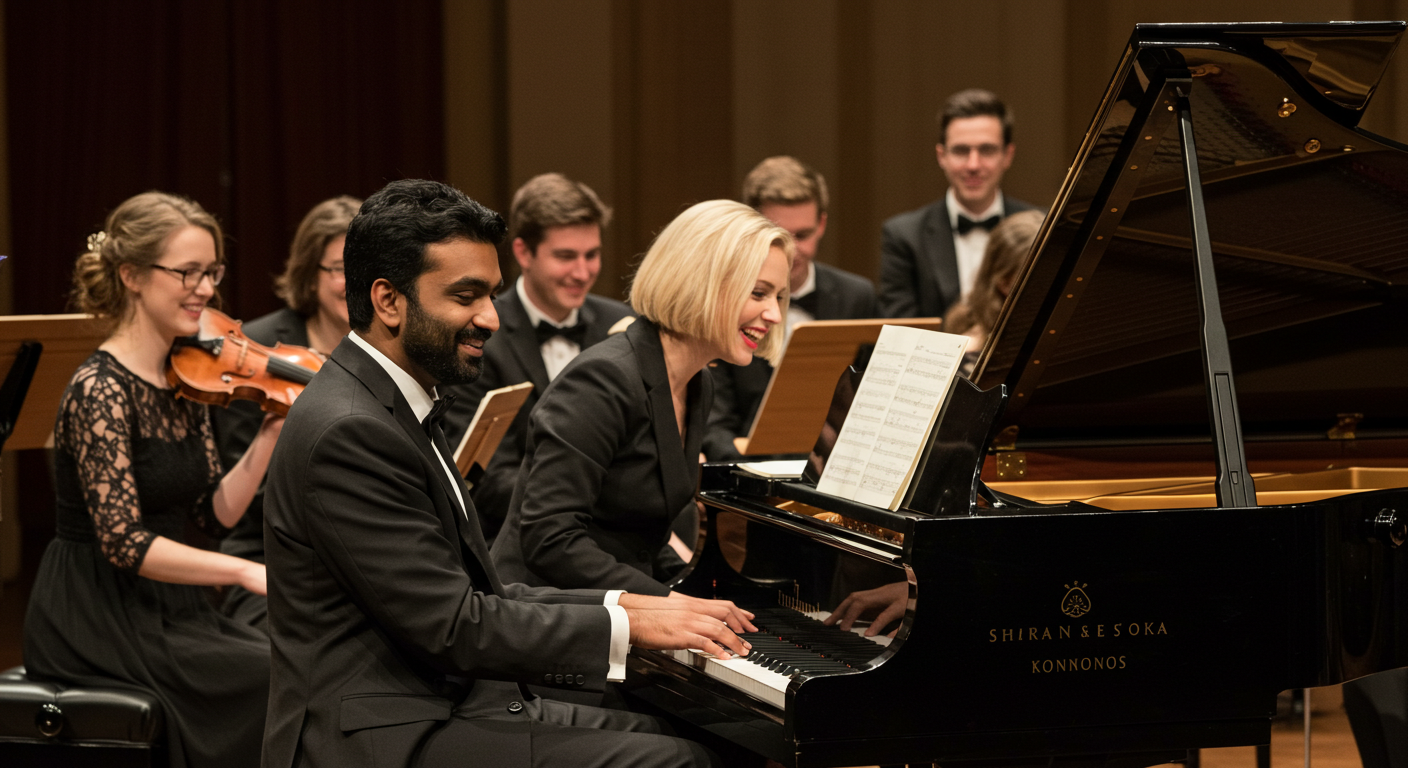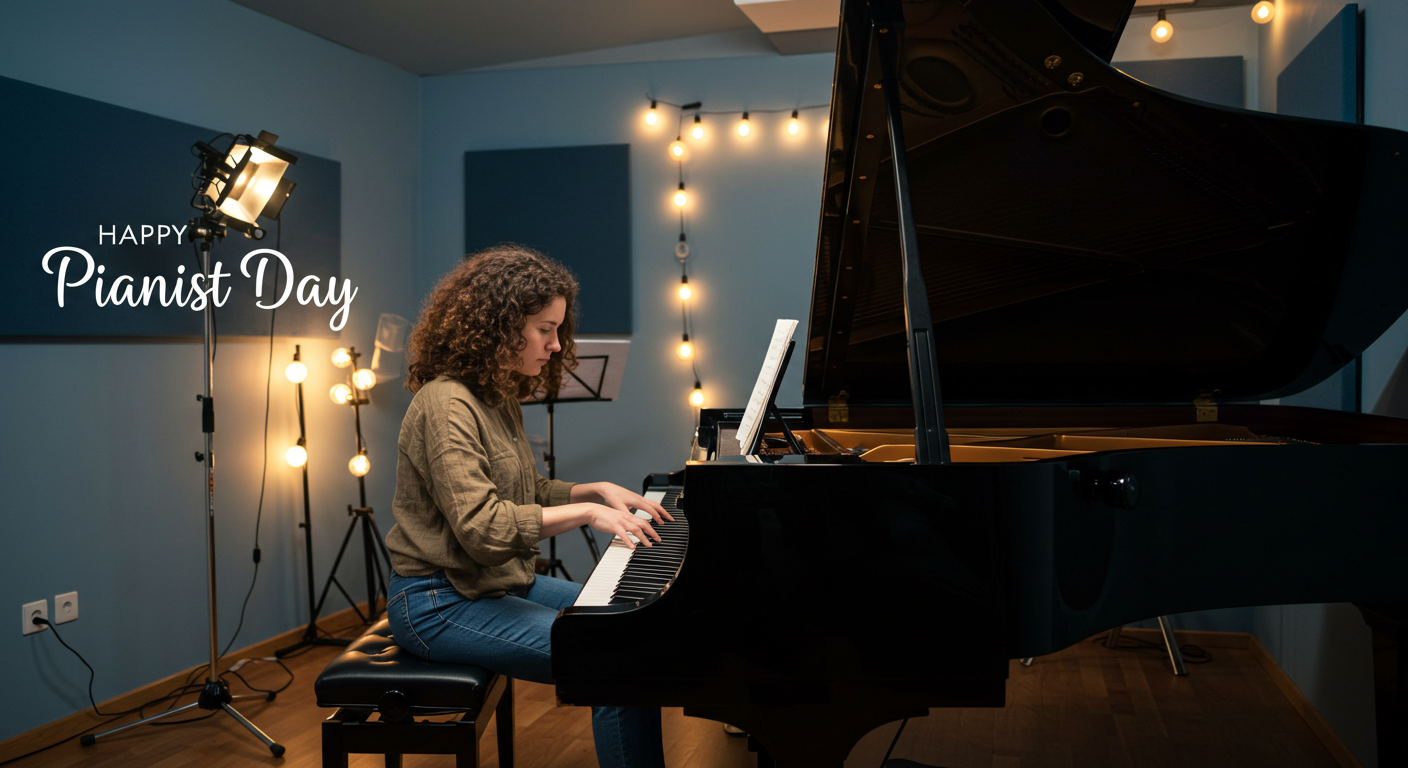The Pianist’s Survival Guide to Performance Anxiety

Your palms are sweaty. Your mind starts racing. You glance at the keys you’ve practiced on a thousand times, and suddenly they look unfamiliar.
If this sounds like you before a performance, you're not alone — not even close.
Performance anxiety is a shared experience in the world of piano. It affects beginners, advanced students, professionals, and even some of the greats. The good news? It’s manageable. And it doesn’t have to stand in the way of powerful, meaningful music-making.
In the spirit of community and real musicianship — the very things celebrated every November 8 on Pianist Day — here’s a practical, honest guide to understanding and handling performance nerves.
Why We Get Nervous in the First Place
Stage fright isn’t a sign of weakness. It’s your body responding to perceived pressure. When you're about to perform, your nervous system can shift into “fight or flight” mode. Your heart rate increases, breathing shortens, and your thoughts may scatter — all in an effort to protect you.
But this is music, not danger. The challenge is teaching your brain that performing isn’t a threat — it’s a gift.
Common anxiety triggers for pianists include:
- Fear of making mistakes
- Worry about being judged
- Perfectionism and self-comparison
- High personal expectations
- Pressure from competitions, exams, or large audiences
The first step in managing anxiety is recognizing that it’s normal — and it means you care.
What It Feels Like (And Why It Doesn’t Mean You’re Not Ready)
Anxiety shows up differently for everyone. You might feel shaky hands, dry mouth, or mental blanking. Some people feel energized and hyper-focused; others feel foggy and overwhelmed.
Even world-class pianists like Glenn Gould and Martha Argerich have spoken openly about nerves. In fact, Argerich famously avoided solo performances for years due to intense stage fright — proving that even extraordinary talent doesn’t make you immune.
So if you’re nervous, take heart: you’re part of a long tradition of pianists who’ve felt the same — and played through it anyway.
Strategies to Prepare and Perform with Confidence
You can’t eliminate nerves completely, but you can reduce their impact. Here’s how to prepare your body and mind before, during, and after the performance.
Before the Performance
- Practice performing, not just playing. Run your pieces straight through without stopping for errors. Simulate the pressure.
- Visualize success. Picture yourself calmly walking to the piano, playing confidently, and finishing with pride.
- Record yourself. Get comfortable with the idea of being “watched” by reviewing your own performances.
- Use breathing exercises. Slow, deep breaths calm the nervous system. Try inhaling for 4 counts, exhaling for 6.
On the Day of the Performance
- Warm up gently. Don’t overplay — trust your preparation.
- Arrive early. Get familiar with the piano, the bench, and the acoustics.
- Stick to a routine. Have a pre-performance ritual: stretching, affirmations, or quiet focus.
During the Performance
- Focus on the music, not the audience. Shift your attention to expression, not judgment.
- If you slip, keep going. The audience probably won’t notice unless you tell them with your face or body language.
- Reframe your mindset. You’re not there to prove your worth — you’re there to share something meaningful.
After the Applause: What Comes Next
Post-performance reflection is just as important as preparation. It’s easy to spiral into over-analysis, but resist the urge to focus only on what went wrong. Instead:
- Write down what went well.
- Identify one area to improve — no more.
- Celebrate the fact that you performed. That alone is growth.
Think of every performance as part of your journey, not a final exam.
Real Stories, Real Courage
If you explore past events on Pianist Day, you’ll find students playing their first public piece, adults returning to performance after decades, and teachers organizing low-pressure recitals to help learners overcome fear.
One example is pianist Davide Fasiello, who recorded an intimate home performance as part of the celebration — not from a stage, but from his personal space. In South Africa, Neil Gonsalves used a public jazz concert to support a cause, putting purpose above perfection.
These moments show that performance isn’t always about grand gestures. It’s about showing up — honestly and bravely.
Long-Term Habits That Help
Managing performance anxiety is a long game. Over time, these strategies build resilience and confidence:
- Perform more often. Low-stakes opportunities help normalize the experience.
- Join a supportive community. Online forums, local groups, or teacher studios provide feedback and encouragement.
- Practice mindfulness. Apps like Headspace or Calm can train your brain to respond more gently to pressure.
- Work with a coach or therapist. If anxiety is severe, there’s no shame in asking for expert help.
Final Notes
If you’ve ever stepped on stage with your heart pounding and your hands trembling — and still played — you’ve already won.
Nerves aren’t proof of failure. They’re signs that you’re reaching beyond comfort, which is where growth happens.
So the next time you feel anxious before a performance, remember this: you are not alone, you are not broken, and your music is still worth sharing.
And if you're looking for the perfect time to perform — even just for a small group — consider doing it on Pianist Day. It’s not about playing flawlessly. It’s about celebrating the courage it takes to play at all.
Related news (no lang!)
You Might Also Like (no lang!):
Do you want your name to be included on the world Pianist Day website and remain there forever?
CONTACT US!
Filll the form for creating your own events and stories! Also you can send us the info to our email info@pianistday.com, or directly to Instagram (it's more convenient and easier) so we can tell the world about them.








